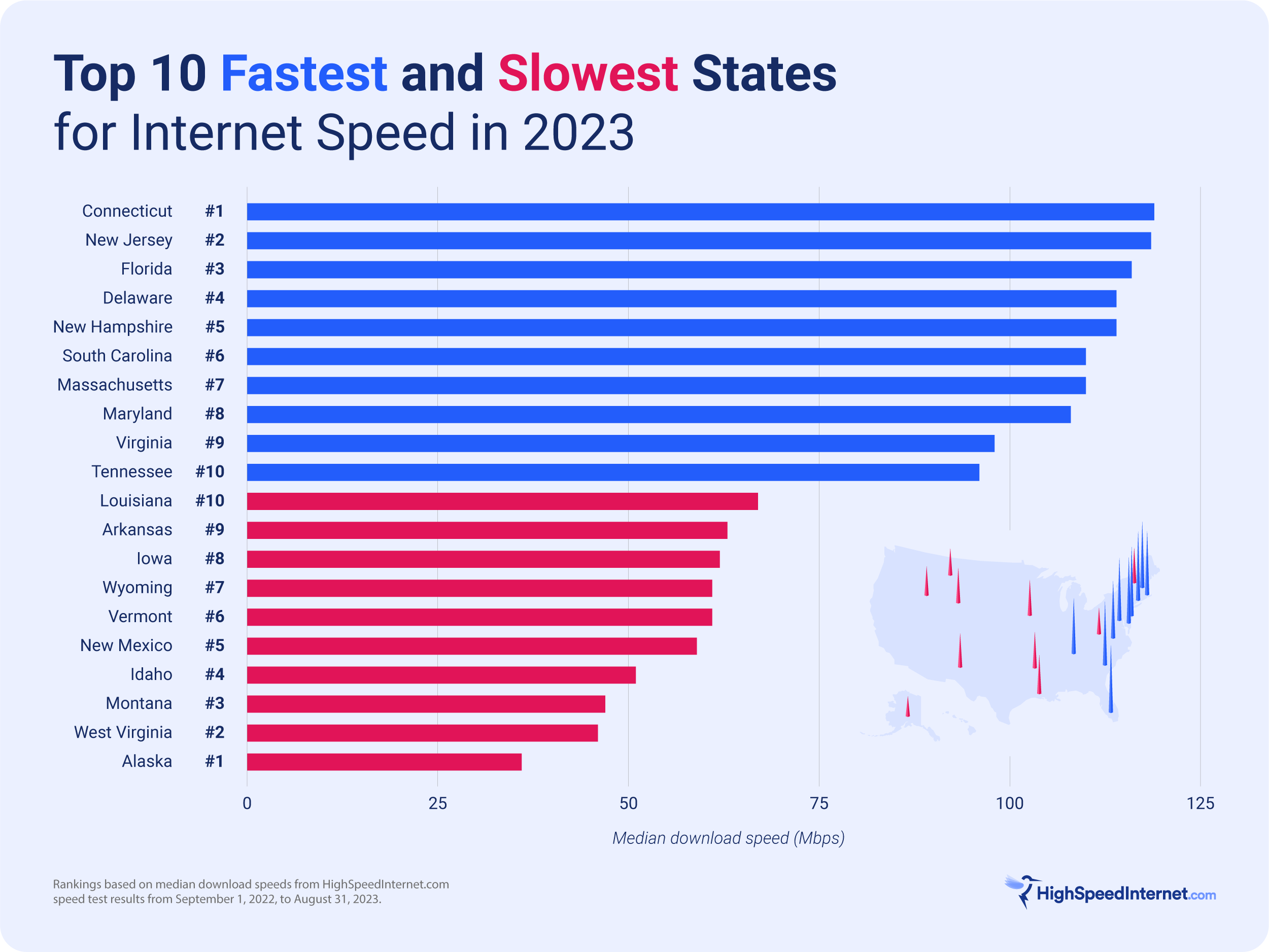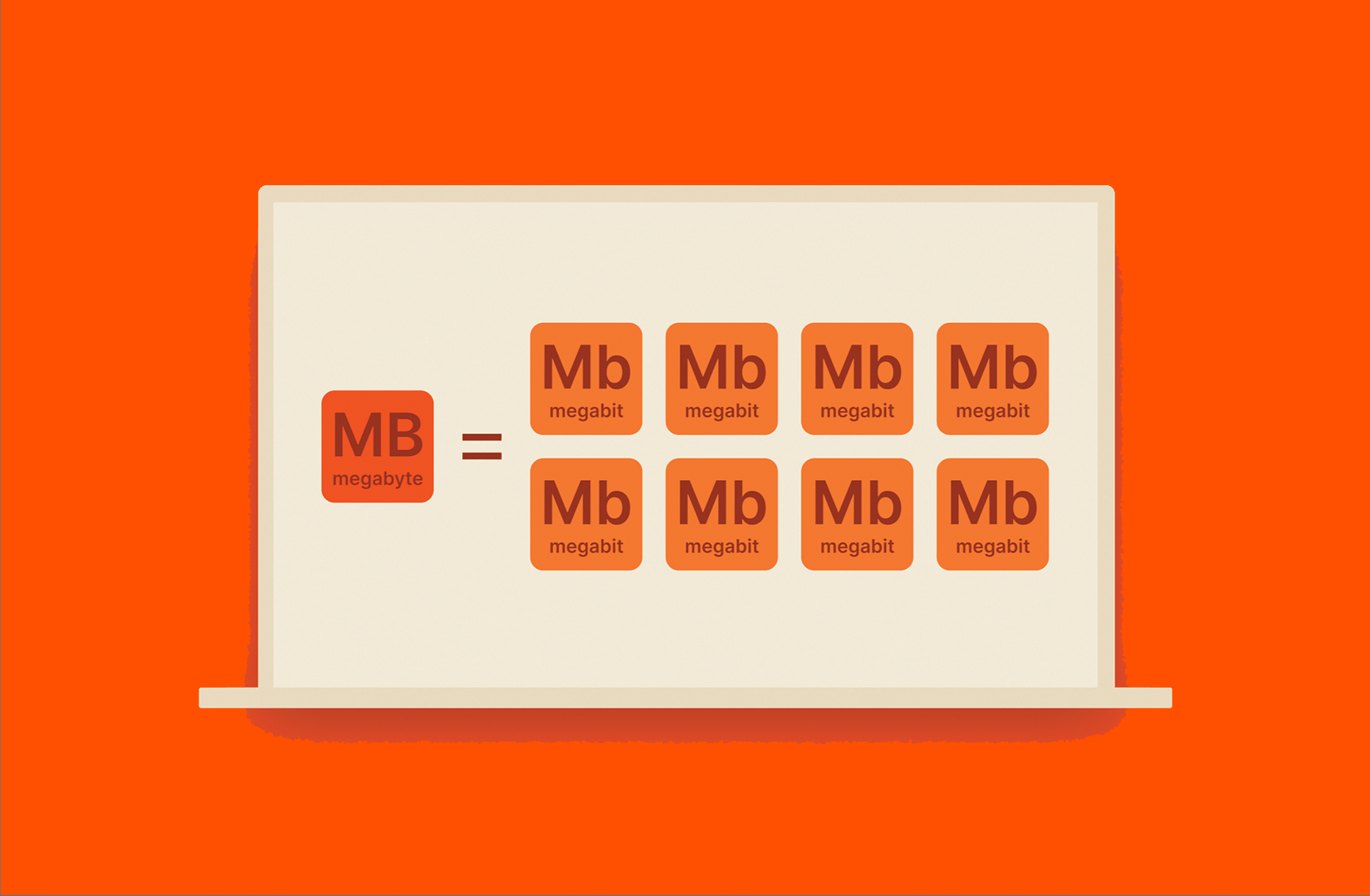A Comprehensive Guide to Measuring Megabits Per Second for Home Usage
A Comprehensive Guide to Measuring Megabits Per Second for Home Usage
Blog Article
How Megabits Per Second Impact Your Online Tasks
The concept of megabits per second (Mbps) plays an essential function in shaping our on the internet experiences. Higher Mbps can boost performance and lower interruptions, while insufficient rates may cultivate frustration and inadequacy.
Comprehending Megabits Per Second
When thinking about internet rate, it's necessary to recognize the idea of megabits per second (Mbps), which works as a typical dimension for information transfer rates. This statistics quantifies just how much data can be sent over an internet connection in one second, providing a clear understanding of efficiency capacities - Megabits Per Second. For context, one megabit is equal to one million little bits, and Mbps is frequently used to reveal transmission capacity for different on-line tasks
A higher Mbps suggests a much faster internet link, making it possible for users to do jobs such as downloading data, browsing sites, and involving in online video gaming a lot more efficiently. For circumstances, normal surfing requires around 1-5 Mbps, while streaming high-def video might require 5-25 Mbps. Comprehending these needs is essential for determining the proper net rate required for specific activities.
Additionally, the number of devices connected to a network can impact overall performance. Several users streaming, video gaming, or downloading all at once can stress readily available transmission capacity, causing slower rates - Megabits Per Second. Evaluating personal online practices and requirements is vital in selecting an internet strategy that straightens with one's demands, ensuring a seamless electronic experience
Streaming and Buffering Issues
Streaming high-def material has become a staple of contemporary on the internet amusement, yet it is usually come with by discouraging buffering problems. These disruptions can considerably detract from the viewing experience, leading to frustration and prospective loss of audience involvement. Buffering takes place when the information sent from the streaming service is not received promptly sufficient to maintain a smooth playback, usually as a result of inadequate internet rate determined in megabits per second (Mbps)

Furthermore, real-time streaming can be affected by network blockage, which takes place when several gadgets share the exact same bandwidth. As a result, optimizing link speed and guaranteeing sufficient Mbps is necessary for a seamless streaming experience. As streaming solutions continue to evolve, recognizing the effect of Mbps on buffering issues continues to be critical for customers looking for uninterrupted entertainment.
Online Pc Gaming Performance
The influence of web speed on online tasks extends past streaming, considerably affecting on the internet gaming efficiency. In affordable video gaming, low latency and high data transfer are essential for a smooth experience. A fast link lessens lag, allowing gamers to react quickly to in-game occasions, which can be the difference in between victory and defeat.
Bandwidth, determined in megabits per second (Mbps), plays an important duty in supporting numerous devices and gaming systems at the same time. Not enough bandwidth can bring about dropped links or reduced game top quality, negatively impacting gameplay. On the internet multiplayer video games require significant data transfer, specifically during peak pc gaming hours when my site many gamers are online.
Additionally, the sort of game can likewise dictate the needed net speed. Busy first-person shooters require greater rates to maintain responsiveness, while turn-based strategy games may work fairly well on reduced rates. As on-line pc gaming remains to evolve, with enhancing graphical integrity and more intricate multiplayer environments, the need for higher Mbps will only heighten. Subsequently, players should guarantee they have sufficient web rate to boost their gaming efficiency and total experience. Buying a durable web connection is vital for players aiming to maximize their performance and pleasure.
Video Clip Conferencing Quality
In today's electronic landscape, video conferencing quality is heavily influenced by net speed, particularly in regards to data transfer and latency. Top notch video calls require adequate bandwidth to send audio and video clip data seamlessly. Commonly, a minimum of 1.5 Mbps upload and download rates is suggested for standard interpretation video, while high-def video conferencing normally demands at the very least 3 Mbps.
Latency, or the delay in between sending and obtaining data, likewise plays a critical role in the customer experience. Higher latency can lead to resemble, lag, and disjointed communications, which can impede cooperation and interaction throughout conferences.
Additionally, numerous individuals in a video seminar can strain available bandwidth, demanding also higher speeds. Network congestion, commonly brought on by synchronised tasks like streaming or downloading, can better weaken video top quality. Therefore, for companies relying upon video clip conferencing for remote partnership, understanding the partnership between megabits per total and second communication top quality is crucial for maintaining productivity and boosting virtual communications.
Selecting the Right Internet Plan
Picking an ideal internet strategy is essential for making certain optimal efficiency in numerous on-line activities, especially in setups that demand high bandwidth, such as video conferencing and online video gaming. Megabits Per Second. When taking into consideration an internet plan, it is vital to examine both the speed and data allowance to match your details usage demands
For homes with numerous customers taking part in simultaneous activities, a strategy using higher megabits per second (Mbps) is recommended. Generally, a minimum of 25 Mbps appropriates for conventional streaming and surfing, while plans exceeding 100 Mbps are more suitable for more intensive jobs. Furthermore, take into consideration the nature of your online activities; video clip conferencing needs a minimum of 1.5 Mbps upload rate, while on the internet pc gaming might require a lower latency but regular link.
It is likewise important to examine your data cap. Unlimited data plans can avoid throttling and interruptions, specifically if heavy usage is prepared for. Research solution suppliers in your area, as accessibility and rates can differ. By thoughtfully choosing a web plan tailored you could look here to your needs, you can enhance your on-line experience, guaranteeing smooth, nonstop access to your recommended tasks.
Final Thought
In conclusion, the relevance of megabits per second (Mbps) in forming online activities can not be overemphasized. A thorough understanding of individual or family Mbps requirements is essential for choosing an appropriate net strategy that adequately supports varied online tasks and user demands.

Generally, a minimum of 25 Mbps is appropriate for conventional streaming and surfing, while strategies going beyond 100 Mbps are better for even more intensive jobs. Additionally, think about the nature of your online tasks; video clip conferencing needs at least 1.5 Mbps publish speed, while on-line video gaming may require a reduced latency however consistent link.
Report this page